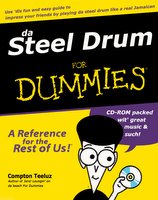80%? Could it be true?
 Recently, the World Bank estimated that some 80% of Jamaicans who have graduated from tertiary institutions live abroad.
Recently, the World Bank estimated that some 80% of Jamaicans who have graduated from tertiary institutions live abroad.Click here for the article
I remember hearing the number and hoping that it just was not true. But here it is -- we are right there with Haiti in having some of the highest numbers, in the company of other poor countries. It matches some other surveys done in Jamaica that show that 80%+ of my countrymen would migrate if they were given the chance.
What the heck are we in a rush to migrate from, exactly?
I was cycling up to Flamstead this past weekend, and a fellow cyclist and I were marvelling at how beautiful Jamaica is. We both followed that remark with agreement that if we could only do something about the crime...
Which makes me think that if we could only do something about poverty, then that would solve everything.
Right?
Well, maybe not. I visited Ghana once and remember seeing greater poverty, and much, much less crime (although there was much more begging.) Obviously, it is not just a matter of how much money or possessions one has.
Maybe it is linked to the income disparity that exists in Jamaica?
But no, why would I turn to crime just because there are rich people living nearby?
I would also need to resent them, I imagined, in order to get to the point where I would be willing to hurt them to take away their possessions.
Resentment. Is that not another word for intolerance? An intolerance of the wealthy?
This seemed to ring true. So, I'm adding this to the ways in which our intolerance exists in Jamaica, and manifests in so much destructive behaviour.
Read more!









